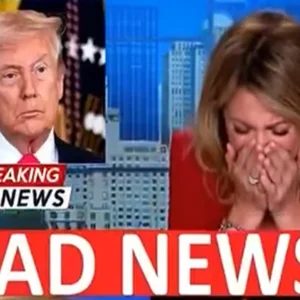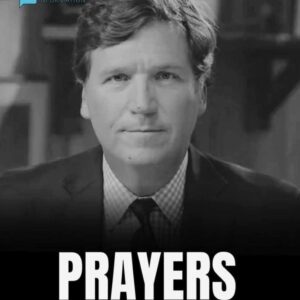Congressional Rhetoric Under Scrutiny: An Analysis of Representative Jasmine Crockett’s Recent Comments
In recent weeks, Representative Jasmine Crockett (D-Texas), a member of the left-leaning “Squad,” has once again made headlines after remarks that many have interpreted as an implicit threat of physical action against a fellow member of Congress. During an interview with former CNN host Don Lemon, Crockett’s comments suggested that she might be prepared to engage physically with Representative Marjorie Taylor Greene (R-Ga.)—a notion that has raised concerns not only among political commentators but also within federal law enforcement circles. This article offers a detailed examination of the incident, the context behind the remarks, and the broader implications for political discourse in the United States.
Context of the Interview and Initial Comments
During a televised interview, Don Lemon invited a discussion about political tensions in the current climate, specifically asking if Representative Crockett was concerned about Representative Marjorie Taylor Greene’s possible actions. While Lemon’s inquiry was aimed at discussing political differences, the conversation quickly took on a charged tone when Crockett responded in a manner that many interpreted as an insinuation about her willingness to use physical force if necessary.
When asked, “Do you worry about her? I mean, do you think she would… she would never do anything physical, or maybe her supporters? I don’t know,” Crockett responded by dismissing the idea that Greene would resort to physical aggression. In her reply, she notably highlighted her own past experience as a criminal defense attorney, an aspect she suggested provided her with unique insights into matters of physical confrontation. “I don’t worry about her doing anything physical. People forget that I was a criminal defense attorney… Marjorie likes to talk a lot. Um, I don’t see her ever being physical at all. Plus, I think that she may be concerned about what I can do physically,” Crockett stated.
This remark, seemingly offhand yet unequivocal, has drawn significant attention due to the potential implications it carries in the charged atmosphere of American politics. The suggestion that one congresswoman might leverage her physical capabilities against another has sparked debate over whether such language falls under protected free speech or whether it constitutes an incitement to violence.
The Broader Landscape of Political Rhetoric in Washington
In recent years, partisan rhetoric in Washington has grown increasingly heated, with both sides of the aisle employing language that many observers consider provocative. Representatives on all sides frequently engage in vigorous debates during televised interviews, and occasional heated exchanges are not uncommon in the highly polarized political environment. However, Crockett’s remarks have generated further discussion about the limits of acceptable political discourse and the responsibilities of lawmakers as public figures.
Critics argue that employing language that hints at physical confrontation could contribute to an environment of increased hostility and potential violence, particularly at a time when the nation is already contending with high political tensions. Proponents, on the other hand, often assert that such exchanges are simply an extension of robust debate and should not be interpreted literally, noting that the competitive nature of politics sometimes necessitates strong rhetoric. The question remains whether Crockett’s words cross the line into the realm of real threat, or if they are merely hyperbolic statements made in the heat of a politically charged moment.
Federal Law Enforcement and Political Accountability
Crockett’s recent comments have not gone unnoticed by federal authorities. In addition to her controversial comments during the interview with Don Lemon, a separate incident involving statements aimed at technology entrepreneur Elon Musk further complicated her public image. According to media reports, Attorney General Pam Bondi issued a stern warning following Crockett’s remarks during an appearance on Fox News with host Sean Hannity. During that segment, Crockett was accused of “threatening lives” with her language directed at Musk and several Republican lawmakers.
Bondi highlighted that after Crockett’s earlier statements regarding Elon Musk—which were interpreted by some as supportive of activist actions targeting Tesla dealerships—the fallout was significant. Law enforcement officials in Texas reportedly found three explosive devices in the state capital shortly after her comments. Although no definitive link between Crockett’s words and the actual events was established, the incident provided fuel for critics who argue that her rhetoric is not without consequences. Bondi went further by insisting that Crockett needed to “unequivocally denounce the violence” and apologize both to Texans and to the broader American public, particularly shareholders of Tesla, as a precaution against instigating further acts of violence.
Bondi’s remarks underscore a critical point in contemporary political discourse: in an era of increased activism and rapidly disseminated information via social media, the words of public officials can have immediate and far-reaching consequences. The Attorney General’s warning thus acts as an appeal for caution, urging those in positions of power to consider the potential impact of their public statements on the safety and well-being of constituents and the larger community.
Political Repercussions and Regulatory Oversight
The controversy surrounding Representative Crockett’s comments extends beyond issues of rhetoric and into areas of regulatory oversight. Notably, there has been a call for the Federal Election Commission (FEC) to scrutinize her campaign finances. The investigation, as reported by conservative watchdog group The Coolidge-Reagan Foundation and The Daily Signal, focuses on funds raised via ActBlue—a Democratic fundraising platform that has faced its own set of controversies over the past few years. Critics argue that the manner in which Crockett has raised campaign funds may be indicative of broader ethical lapses or a disregard for the norms of political funding.





